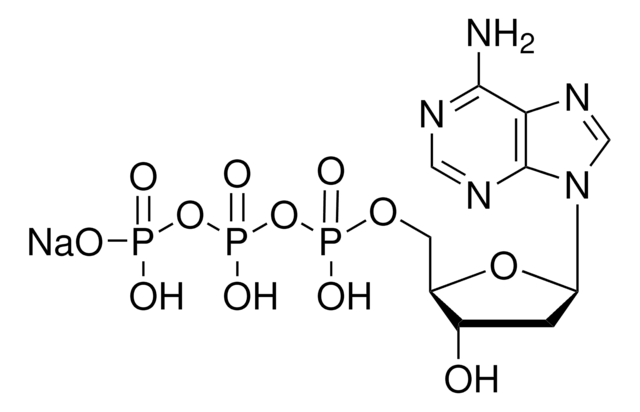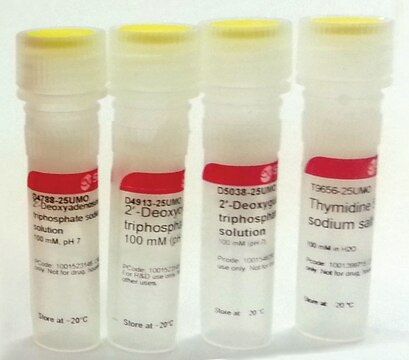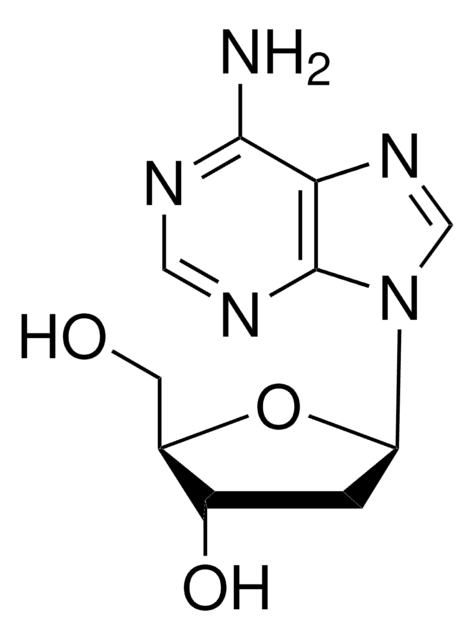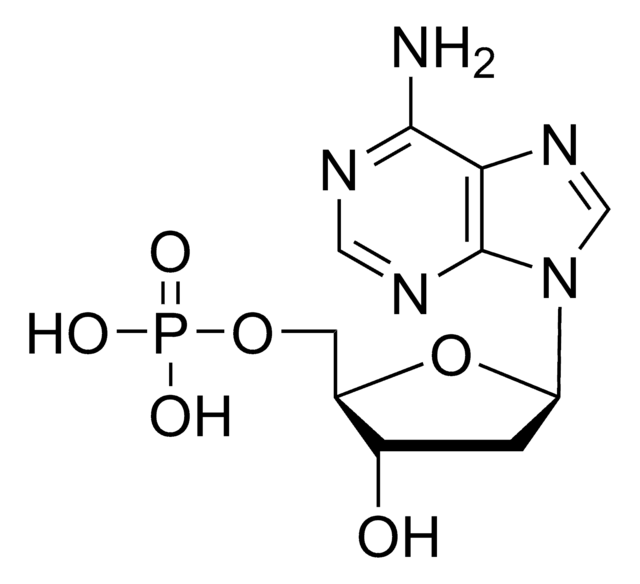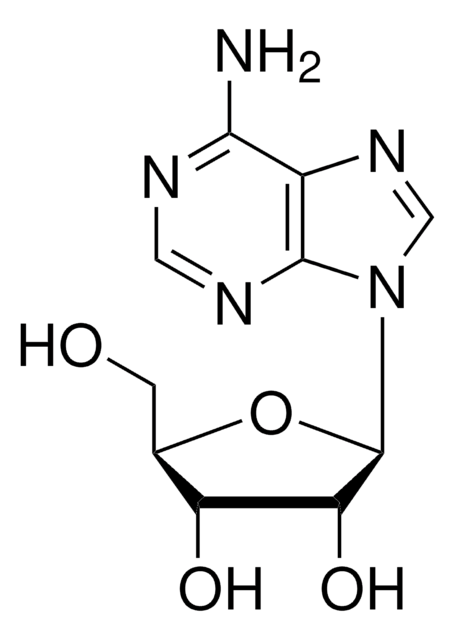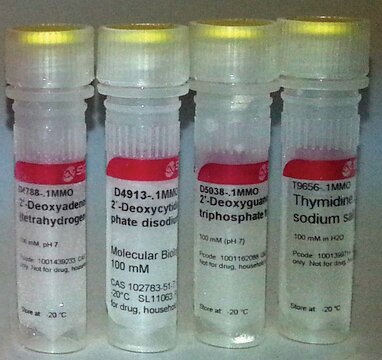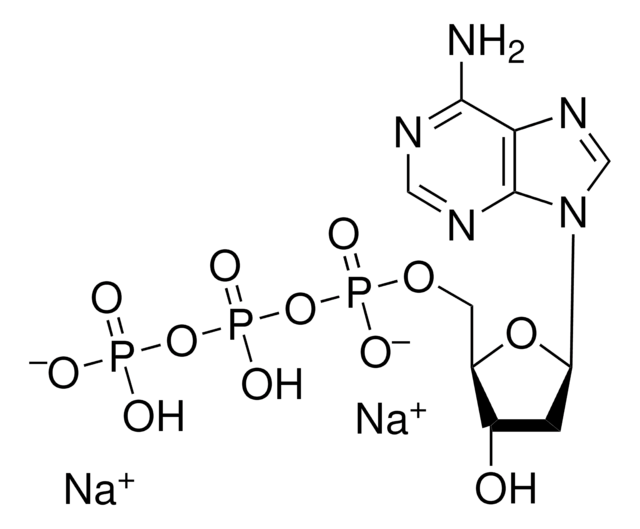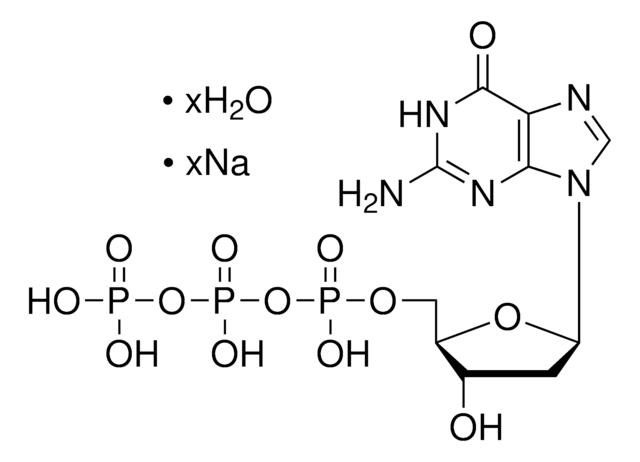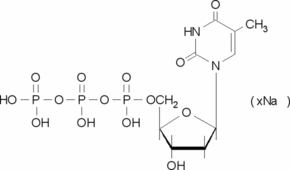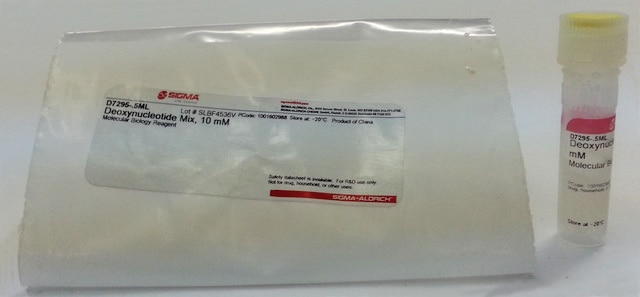D6920
2′-Deoxyadenosine 5′-triphosphate sodium salt solution
10 mM
Synonym(s):
dATP
About This Item
Recommended Products
assay
≥99%
Quality Level
form
liquid
concentration
10 mM
color
colorless
foreign activity
DNase, RNase, NICKase, none detected
shipped in
dry ice
storage temp.
−20°C
SMILES string
[Na+].Nc1ncnc2n(cnc12)[C@H]3C[C@H](O)[C@@H](COP(O)(=O)OP(O)(=O)OP(O)([O-])=O)O3
InChI
1S/C10H16N5O12P3.Na/c11-9-8-10(13-3-12-9)15(4-14-8)7-1-5(16)6(25-7)2-24-29(20,21)27-30(22,23)26-28(17,18)19;/h3-7,16H,1-2H2,(H,20,21)(H,22,23)(H2,11,12,13)(H2,17,18,19);/q;+1/p-1/t5-,6+,7+;/m0./s1
InChI key
YJWCICGGRLOGEH-VWZUFWLJSA-M
Looking for similar products? Visit Product Comparison Guide
Related Categories
General description
Application
Storage Class
10 - Combustible liquids
wgk_germany
WGK 3
flash_point_f
Not applicable
flash_point_c
Not applicable
Certificates of Analysis (COA)
Search for Certificates of Analysis (COA) by entering the products Lot/Batch Number. Lot and Batch Numbers can be found on a product’s label following the words ‘Lot’ or ‘Batch’.
Already Own This Product?
Find documentation for the products that you have recently purchased in the Document Library.
Customers Also Viewed
Protocols
Protocol using antibody mediated hot start polymerase. Method has short activation period (<1min), and results in higher yields and more specificity over standard PCR methods.
Hot Start Taq Polymerase protocol to reduce non-specific amplification, with MgCl2 Optimization
Protocol using antibody mediated hot start polymerase with a red dye for easy gel loading. Method has short activation period (<1min), and results in higher yields and more specificity over standard PCR methods.
Our team of scientists has experience in all areas of research including Life Science, Material Science, Chemical Synthesis, Chromatography, Analytical and many others.
Contact Technical Service